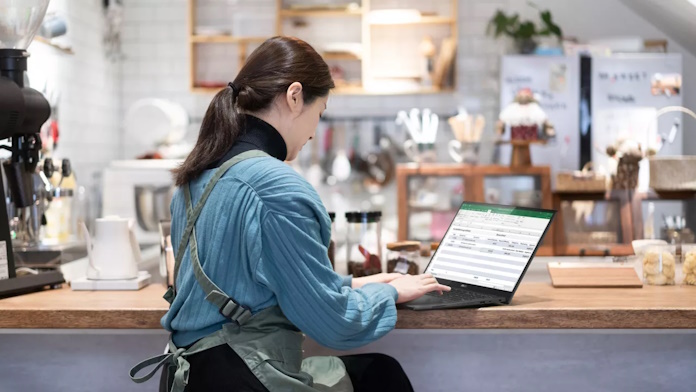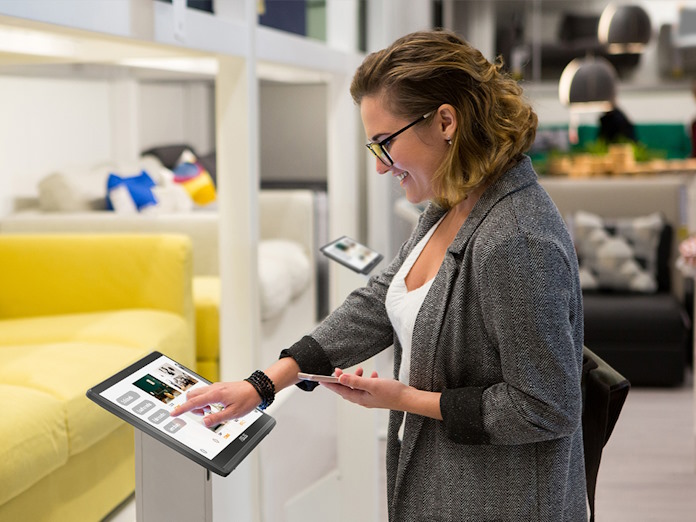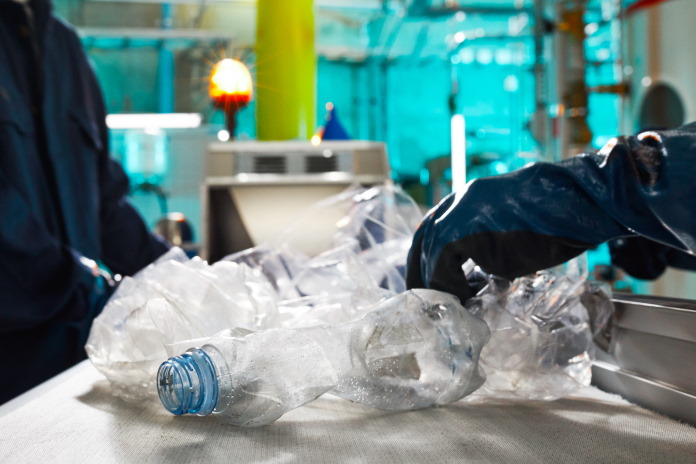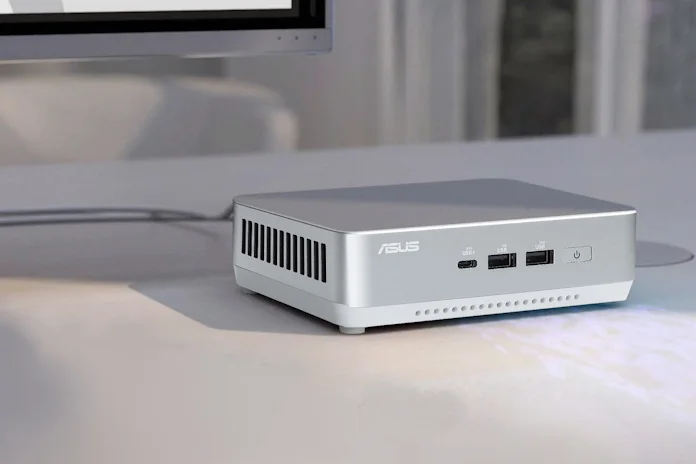By Paul Cockeram
Key takeaways
- Zero-consumers will appreciate the ASUS NUC’s lighter environmental impact as a step toward net-zero waste.
- Zero-consumers will be attracted to retailers who create their own multimedia ecosystem using ASUS Expert series technologies and in-store AiO computers.
- Zero-consumers will grow loyal to retailers who provide high-quality, flexible services managed by an ASUS ExpertBook.
- Zero-consumers will appreciate same-day pickup of online purchases that are backed by the enterprise-grade security of ASUS tech.
The Covid pandemic clearly changed the way we live, work, and shop. But for how long? With the pandemic lockdowns retreating further into our rearview, we’re starting to see which changes were temporary and which are sticking around. Some mainstays of corporate culture like business travel are reverting to pre-pandemic norms, but their fundamentals have changed as new trends take hold. No business sector has seen more disruption to its fundamentals than retail, especially for small- to medium-sized businesses.
For starters, there is the back-and-forth between goods and services. The pre-pandemic consumer was more interested in purchasing services, until the pandemic lockdowns abruptly forced consumers to stay home and switch to goods. Think of middle-class consumers who canceled their gym memberships and bought a Peloton. However, as supply-chain troubles eased and products became more readily available, consumer preferences have transformed once more. And research shows that new habits are beginning to stabilize into reliable, forecastable trends.
Today, increasing numbers of Americans fit into a new profile called “zero-consumers.” The zero-consumer is defined by five characteristics, each of which represents a development in how consumers shop. To earn the dollars of zero-consumers, retailers need to understand and adapt to these five traits. Better yet, savvy business owners can take advantage of the disruptions in retail by taking swift action, potentially setting themselves up to thrive in the new retail environment. But according to McKinsey, retailers who ignore the changes might not discover they are falling behind the curve until it’s too late.
Zero boundaries
The new retail consumer will not let herself be confined by the walls of a bricks and mortar store. This trend was first noticed when shopping malls started shutting down after the rise of online retail. Now, even grocery stores have gotten into the game, as grocery shoppers make selections on store websites and either pick up goods at the store or have them delivered.
Since shoppers no longer wander the aisles of retail stores, they no longer discover new products by browsing the shelves. Today, according the McKinsey, almost half of all consumers—and about seventy percent of Gen Z and Millennials—report finding new purchases through celebrities, social media influencers, or blogs and articles. In other words, today’s zero-consumers “shop fluidly across channels.”

To meet zero-consumers where they live, big retailers have developed multimedia networks that bring together their website, social media presence, store environment, in-store screens, and catalogs into one cooperative media ecosystem. These retail media networks have become essential to developing and sustaining store brands while maintaining relationships with customers. More importantly, media networks are also becoming a new source of revenue, making them an attractive option for small- to medium-sized businesses. Thanks to ASUS technologies, every retailer can build out a media network with a minimum investment of capital.
Think of your new media network as a growth opportunity. McKinsey reports that a successful network will leverage foot traffic from the store into web traffic, make customers into audiences, and capture enormous amounts of granular data on customers’ behaviors and intentions. The data can not only inform business owners’ decisions but also be sold to other businesses, creating a new, passive revenue stream. In a time of uncertain growth and slim margins, every retailer should perk up at the promise of finding more value in assets that already exist.
To get your retail media network up and running, consult the experts at ASUS. Our Expert series of laptop and desktop computers, displays, and adapters has the hardware you need to crunch the data, along with the visuals necessary to draw customers’ eyes. For instance, the ASUS ExpertCenter E5 AiO (All-in-One) computer is a business-ready PC with class-leading performance and the look of a standalone monitor. You can use its two-way AI noise cancelation to have a video conference in the morning, then turn it around to run in-store displays and videos in time for the afternoon rush. Better yet, attach it to any VESA-compatible wall mount for the ultimate in positioning flexibility.
Zero in the middle, with zero loyalty
If zero-consumers have gotten used to a world without boundaries, they have also run into some difficulties. One challenge hitting every consumer is inflation. As prices soared during recent years, consumers understandably changed their spending habits to compensate.
The biggest changes occurred in the middle of the price range. Today’s zero-consumer is “either scrimping or splurging,” says McKinsey. At the high end, almost 40 percent of European and American consumers are making plans to spend big on travel, restaurants, and apparel. At the same time, on the low end, “approximately 80 percent of US consumers said they’re trading down to lower-priced options” in April of 2023.

While consumers are getting more careful with their dollars, they are also abandoning higher-end brands. This results in the zero-consumer’s near-total lack of loyalty, a significant change from past spending habits. Typical consumers of the previous century saw themselves as defined by the shoes they wore and the stores they shopped in. Their favored brands were part of their personal identity.
But millennials and Gen Z have rejected that way of life, and the trend is gaining steam. In 2020, one third of customers reported switching brands. By 2022, it was about half. The retailer is becoming nothing more than a means of accessing products. In this retail environment, trying to compete by lowering prices inevitably puts business owners in danger of racing to the bottom. Meanwhile, mid-ranged goods offered at mid-level prices could end up gathering dust on store shelves.
Recapture loyalty by building a community for customers
To adapt, small- to medium-sized businesses should notice where zero-consumers’ dollars are flowing. It seems that consumers are most interested in splurging on experiences. To attract those dollars, retailers can begin by offering high-quality services that are adjacent to the products they sell. Think of a pet store that sells collars, shampoos, pet foods, and toys. Then imagine this pet store offering their customers easy access to bathing and grooming services. It’s a natural fit because customers already bring their pets into the store. Soon, customers with questions about pet-training might be able to buy weekly, in-store obedience classes. If possible, the store could even sell at-home dog-walking services or provide in-store kennel services to customers going on vacation.
The market for retail stores to expand into the service sector is not just present, it’s growing. Marco Catena says that McKinsey “tested customer willingness to approach retailers for such services, and 60 percent, on average, stated that they would buy from retailers. Furthermore, high-income customers are more willing to switch toward retailers.” Bringing customers into stores for services in addition to products could provide an additional bonus: loyalty.

But how can you attract a customer who has zero loyalty? Start with a menu of high-quality services, which keeps customers coming back to the store. Once these trips to the store feel like a natural part of the customer’s monthly routine, they check in more regularly with the store’s social media accounts and website. At that point, a savvy store owner will take the opportunity to build customer loyalty into community.
Imagine our pet store staging an event where packs of huskies and their people gather to celebrate the breed and trade grooming tips, as well as spending some money. In time, the retail space begins to feel like a meetup space. And businesses who position themselves as community centers will benefit from the loyalty of consumers who feel at home in the communities that are centered there.
The experts at ASUS can help business owners develop and advertise their new menu of services. We recommend carrying an ASUS ExpertBook B5 everywhere you go, so when inspiration strikes, you can draw up a product description and upload it to your media network immediately. The ExpertBook B5 is a perfect on-the-go companion for forward-thinking business owners. And to keep things hassle-free, this ultralight computer is also military-grade tough.
Since the ExpertBook B5 is AI-ready, it also helps you capture and analyze all that customer data you are generating through your media network and foot traffic. Soon enough, algorithms will help you make quicker, more accurate decisions.
Zero patience
Today’s zero-consumers have gotten used to the perks of the new retail ecosystem. You could call it the Amazon effect, but customers no longer care to wait days or weeks for their products after clicking “purchase.” And anyone who is willing to wait will take free standard shipping for granted.
Amazon also changed the game by letting customers purchase products online and then get same-day shipping, or else pick up their purchases immediately in a local store. To attract zero-consumers, retailers need to sell products online while also providing rapid shipping. How rapid? McKinsey finds that “a plurality of customers today report that three-day shipping is the slowest they’ll tolerate before looking to other retailers.”

To meet zero-consumers’ high standards for online shopping and rapid delivery, small- to medium-sized businesses can partner with ASUS. Online retail requires the enterprise-grade data security provided by ASUS to keep customers’ financial information safe from cyberattacks. And the AI-ready power of our ExpertBook series will help automate and streamline your order fulfillments to maximize efficiency. Better yet, outfit your store with a small, powerful POS terminal from ASUS tucked neatly on your counter. With responsive, multi-touch screens that empower seamless self-service and cutting-edge visuals, these kiosks can streamline customer pickups for orders posted online that day. They also make excellent sign-in points for all the new services you provide.
Net-zero as a factor for buying
The final trait defining zero-consumers is familiar to most of us. As consumers begin to feel the impacts of climate change in their everyday lives, they increasingly spend their dollars on goods and services that feature a responsible environmental profile. It is no longer enough for a company to say they care about the environment — they have to act on it. According to a recent analysis conducted by NielsenIQ and McKinsey, “products making sustainability-related claims on their packaging averaged 28 percent cumulative growth over the past five years, versus 20 percent for products that made no such claims.”

Zero-consumers reward businesses that evaluate their environmental impact, make improvements, and let customers know about it. To ensure growth potential, retail businesses can start making more careful decisions about their technology infrastructure. Take that workhorse of business technology, the desktop PC.

The traditional, mid-tower PC occupies a lot of space. Shrinking down that mid-tower case to a five-by-five-inch square would free up valuable in-store real estate while reducing the impact on source materials and landfills. That kind of thinking went into the new ASUS NUC, a mini-PC prioritizing power and user-friendly design. Besides top-notch quality and reliability, the NUC provides an extended lifespan and modular design. Users can open the NUC without tools for quick and easy upgrades for years to come.
But don’t let the smaller case and lighter environmental footprint fool you. The NUC has numerous I/O ports that allow for multi-display setups with high-end graphics, as well as a host of options for peripheral hardware. And the smaller size does not sacrifice power, for the NUC is built to run advanced AI capabilities and support diverse business applications.
Big changes make new opportunities
By investing in future-proof ASUS technologies that are easy to use, small- to medium-sized businesses can lighten their environmental impact while expanding their media networks and attracting customers with new services. Zero-consumers will appreciate every step you take toward recognizing how we all depend on the same environment, how we are all one community. And you will appreciate the benefits of owning your customer relationships, along with creating new, low-margin revenue streams. To get started, click here to find the right ASUS gear for your needs.

